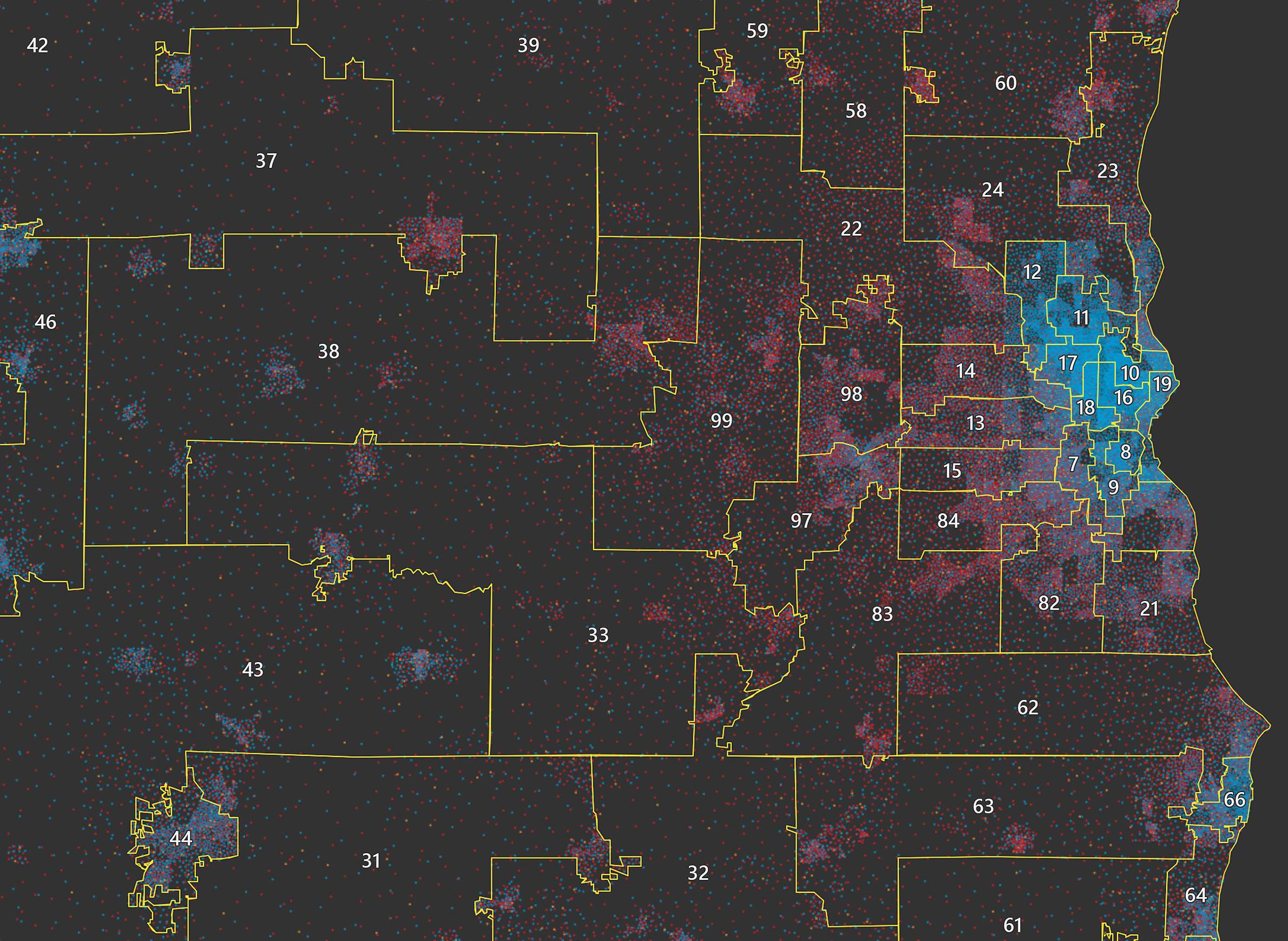
Caitlin McKown/UW Applied Population Lab
Series: Gerrymandering, Wisconsin And The Courts
It's an unsavory truth in American democracy that politicians, to some extent, do get to choose their voters. The party in power often tries to draw state legislative and U.S. House of Representatives district maps to its own advantage, and courts have been reluctant to stop it unless there's strong evidence of racial discrimination. The Republican wave of election victories in 2010, and the increasing sophistication of redistricting software set the stage for an aggressive new batch of legislative maps in Wisconsin and other states. Multiple federal lawsuits challenging this redistricting followed. One court challenge arising from Wisconsin, Gill v. Whitford, set out to prove that partisan gerrymandering could violate voters' rights even if it wasn't racially discriminatory. The case reached the U. S. Supreme Court, and the resulting decision could trigger a seismic change in how political parties consolidate electoral power.